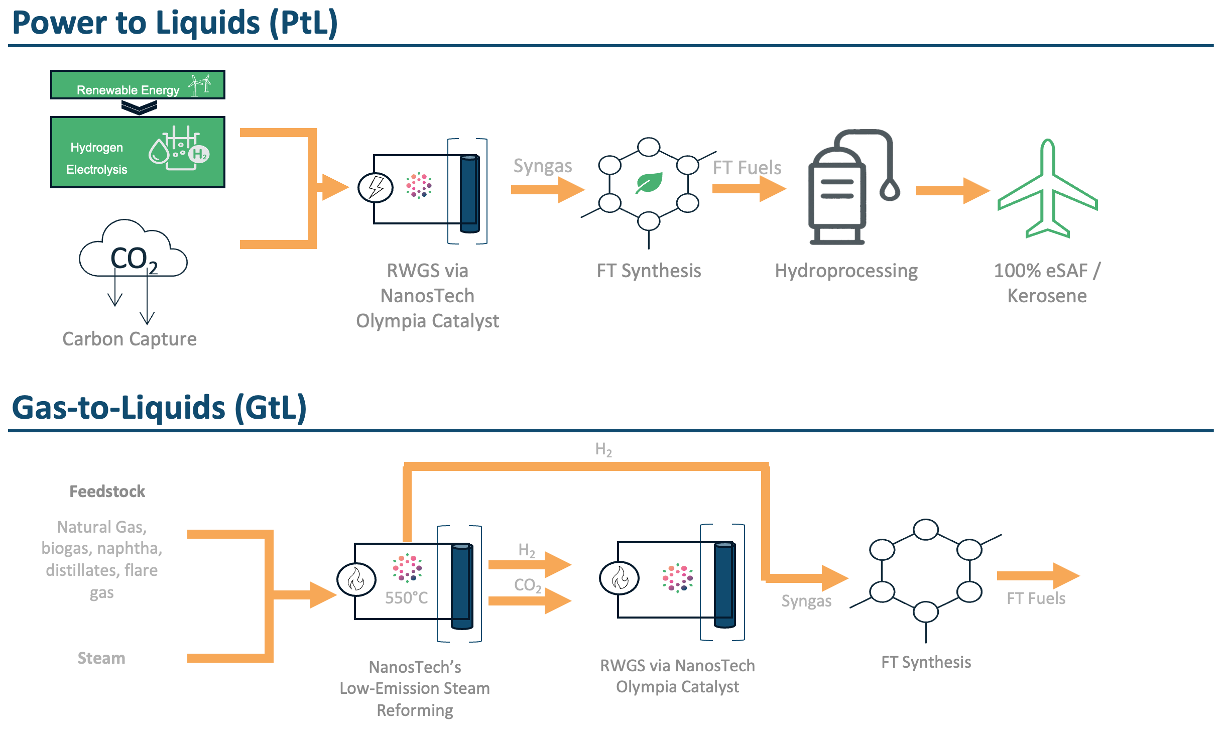From Power & Emissions to
Liquid Energy

A breakthrough molybdenum carbide catalyst, validated in Science makes CO₂-to-syngas conversion selective, stable, and scalable, turning emissions into the building blocks of sustainable fuels and chemicals.


Unlocking CO₂ as a Resource, Not a Liability
Traditional catalysts fail to make CO₂ conversion practical:
X Noble metals (Pt, Pd, Ru) deliver performance, but costs are prohibitive and stability is poor in real-world environments.
X Base transition metals (Fe, Ni, Cu) are cheaper but lack selectivity, generating unwanted methane and by-products.
X Scaling barriers prevent widespread deployment, leaving CO₂ utilization stuck in pilot stages.

Low-Cost, Low-Emission CO₂ Conversion with Olympia™
Olympia™ catalyst, published in Science, proves that cubic molybdenum carbide can deliver noble-metal performance without noble-metal costs. NanosTech has successfully scaled this innovation beyond the lab and is preparing for pilot demonstrations.
High Selectivity & Stability
Olympia™ catalyst converts CO₂ to syngas with near-100% selectivity, avoiding methane and by-products.
High Selectivity = ↓ Waste, ↑ Hydrogen Efficiency.
Cost Advantage
Delivers noble-metal performance without noble-metal costs, using abundant materials to make CO₂ conversion economically viable.
Cost Advantage = ↓ Costs, ↑ Economic Viability
Scalable by Design
Olympia™ can be deployed globally — from pilot demonstrations to large-scale commercial adoption.
Scalability = ↓ Barriers, ↑ Global Adoption
A Gateway to Low-Carbon Products
Olympia™ catalyst makes CO₂-to-syngas conversion efficient and scalable, opening pathways not only to eFuels like methanol, diesel, and SAF, but also to low-carbon chemicals, advanced materials such as graphite, and beyond. RWGS positions captured CO₂ as a cornerstone feedstock for multiple future markets.




